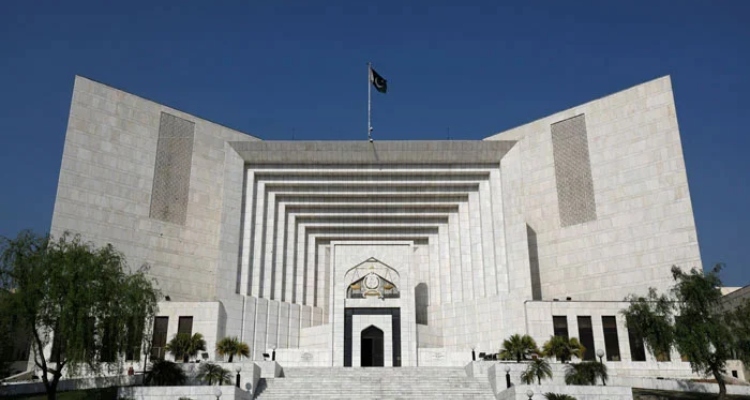
In a major win for Pakistan’s ruling coalition and a setback for former Prime Minister Imran Khan, the Supreme Court reinstated key amendments to the National Accountability Ordinance, reversing its previous decision from last year.
A 5-judge bench, led by Chief Justice Qazi Faiz Isa, along with Justices Aminuddin, Jamal Khan Mandukhel, Athar Minallah, and Hasan Azhar Rizvi, delivered the unanimous verdict. The court approved intra-court appeals from both the federal and provincial governments, declaring that Khan failed to prove the unconstitutionality of the amendments to the National Accountability Bureau laws.
The amendments, passed in April 2022 during the Pakistan Democratic Movement (PDM)-led government, were originally challenged by Khan in June 2022. They revised sections 2, 4, 5, 6, 25, and 26 of the NAB laws. A previous ruling by a three-member bench led by then Chief Justice Umar Ata Bandial in September last year had struck down 9 out of 10 of these amendments, following a petition by Khan.
However, in today’s ruling, the Supreme Court emphasized that the amendments had not been evaluated under the Supreme Court (Practice and Procedure) Act, 2023. This act requires that any petition must be heard by at least five Supreme Court judges, a condition not met in the earlier decision. The court further noted procedural issues with how Khan’s petition was handled.
The government had filed an intra-court appeal in October 2022, arguing that the earlier judgement had “procedural impropriety” and needed to be overturned.
Key changes introduced by the amendments included raising the threshold for NAB investigations to cases involving over PKR 500 million, limiting NAB’s power to investigate fraud cases unless they involved more than 100 victims, and capping the custody of the accused at 14 days, later extended to 30 days.
This ruling strengthens the current government’s position while weakening Imran Khan’s political and legal standing in his ongoing battle against the NAB amendments.




